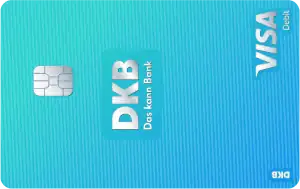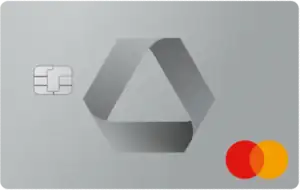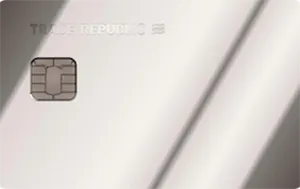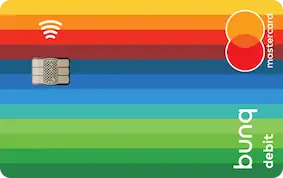How we earn our money
We finance our services on how-to-germany.com through affiliate programs.
When a user orders a financial product through our site and their application is approved, we may receive a commission from some providers. It’s important to note that this does not in any way influence our independent ratings and recommendations.
All the products we present on how-to-germany.com are selected for their quality, range of services, and excellent value for money.
Debit Cards in Germany
- In Germany, you typically receive a bank card (usually a debit card) when you open a current account (Girokonto).
- Debit cards are linked directly to your current account — all payments and withdrawals are immediately debited from your available balance.
- While debit cards themselves do not offer a credit line, they can still contribute to building your credit history in Germany, especially when linked to a current account that is reported to the Schufa.
- Unlike prepaid cards, debit cards typically require a bank account; however, many do not require a Schufa credit check.
- Debit cards are issued as Visa or Mastercard. They are widely accepted in Germany and worldwide.
- Most German debit cards are free because they are included with your bank account. However, fees may apply for account management and card transactions, such as cash withdrawals or international payments.
- Premium debit cards from providers like N26 or Revolut offer attractive extras, including insurance, cashback, and lounge access at airports.




What are Debit Cards?
A debit card is directly linked to your current account (Girokonto). It allows you to pay in-store, for online purchases, or withdraw money, with the amount being immediately deducted from your account balance. Unlike credit cards, there is no borrowing involved — you can only spend money that’s in your bank account. Debit cards are a convenient alternative to cash payments, suitable for both everyday expenses and travel.
In Germany, there are different types of debit cards: traditional Giro cards (also known as EC card, used mostly for domestic payments), modern Visa and Mastercard Debit cards (with global acceptance), and virtual or mobile-only debit cards, issued by online banks and fintech providers (also Visa or Mastercard).
Debit cards are widely accepted both in-store and online, and they are the standard form of cashless payment. Most German banks issue a debit card when you open a current account. Modern cards — particularly those from online banks — are typically Visa or Mastercard-branded, making them universally usable worldwide.
Debit cards offer all the same features as real credit cards, except for a credit limit or borrowing function. Most expats benefit from Visa or Mastercard Debit cards, as they combine international usability with modern features like contactless and mobile payments. With a modern debit card, you can pay online, shop in stores, and withdraw cash, all while maintaining full control of your finances.
Premium debit cards – such as the N26 Go and Metal cards – may be equipped with additional services, including insurance, shopping benefits, or lounge access at airports, just like real credit cards. The N26 premium cards are great for international travel, offering zero foreign transaction fees, travel insurance coverage, and free cash withdrawals in foreign currencies.
Debit cards also contribute to building a credit history in Germany, since the associated account activity is reported to the Schufa, the country’s credit reporting agency.
Many traditional German banks issue a Girocard as the standard debit card for their current accounts. While Girocard payments are well-suited for in-store purchases within Germany, they are often not accepted for online shopping or international transactions. If you need a Visa or Mastercard Debit card, you frequently have to request it separately, and in many cases, you will also pay an additional fee.
In contrast, online providers like N26, Revolut, or DKB usually include a modern Visa or Mastercard debit card as part of their account package. These cards offer full international usability, including compatibility with contactless and mobile payments.
The key difference lies in acceptance: Girocard acceptance is usually limited to Germany and a few other European countries, while Visa and Mastercard Debit cards are accepted worldwide. Some Girocards are co-branded with V Pay, allowing limited international usage, mostly within the EU. However, V Pay is being gradually phased out in favor of full Visa Debit. Similarly, Maestro — previously used as a co-badge with Mastercard for international transactions — is being phased out and replaced by Mastercard Debit, which offers broader global acceptance and improved functionality.
Pros and Cons of Debit Cards
- Widely accepted across Germany and internationally
- No risk of accumulating credit card debt, because all card payments are deducted immediately from your bank account
- Depending on the provider, often available without a credit check or Schufa score
- Supports contactless payments and mobile wallets (Apple Pay, Google Pay)
- Helps build a credit history through regular use of the linked bank account
- No credit line or payment deferral option
- Fewer additional benefits compared to credit cards (e.g., often no insurance or cashback)
- Some cards incur fees for foreign transactions or ATM withdrawals
- Certain services (e.g., car rentals or hotel bookings) may require a real credit card
Where and How to Use Your Debit Card
German debit cards are widely accepted for everyday payments, both in Germany and abroad. They function like credit cards at the point of sale, while drawing funds directly from your checking account. Transactions are declined if your account has insufficient funds, making debit cards a secure and debt-free payment method.
You can use your Visa or Mastercard Debit card in the following situations:
- In-store payments: Almost all physical retailers, supermarkets, and restaurants in Germany and worldwide accept debit cards. Contactless payments and mobile wallets, such as Apple Pay and Google Pay, are also supported.
- Online shopping: Unlike Germany’s traditional Girocard, international debit cards are widely accepted by online shops, subscription services, and travel platforms.
- ATM withdrawals: You can withdraw cash at German ATMs and worldwide. Fees vary depending on your card provider and the ATM network.
One potential limitation: While most debit cards are accepted for hotel reservations and car rentals, some providers may still prefer or require a credit card to secure a security deposit. However, many users successfully make these bookings with modern debit cards, especially from well-known banks and fintechs.
Who Should Use a Debit Card?
Debit cards are ideal for managing daily expenses, especially for expats and students adjusting to life in Germany. Because many debit cards are linked to current accounts that do not require a Schufa score, they offer a straightforward entry into the German financial system. You get access to a fully functional bank account and a card that works online, in stores, and abroad — all without needing to apply for credit.
They are also a great option for everyday users, especially mobile-first customers who prefer managing their finances via a mobile app. Modern debit cards, particularly from online banks, come with intuitive mobile tools, real-time notifications, and built-in budgeting features. Contactless payments at any payment terminal are widely supported, including Apple Pay, Google Pay, and other digital wallets.
Most modern debit cards include both chip and contactless functions — though in rare cases, especially outside the EU, older terminals may still require the use of the magnetic strip for classic card transactions.
Fees and Costs of Debit Cards
German debit cards are often marketed as low-cost solutions, particularly when issued by online banks. However, costs can vary significantly depending on whether you use a direct bank, a fintech, a major established bank, or a traditional savings bank. Some providers charge fees for using foreign currency, making cash withdrawals, or opting for premium card options. The European Central Bank sets regulatory standards for electronic payments and banking fees, which also apply to debit card providers in Germany.
Key cost factors include:
- Card issuance and maintenance: Many online providers offer debit cards for free, while traditional banks may charge a small one-time, monthly, or annual fee.
- Account management fees: Some bank accounts come with monthly maintenance charges, averaging between €5 and €15. These fees may be waived if you meet certain criteria, such as a minimum monthly income or age limits.
- ATM withdrawals: Domestic withdrawals at the provider’s ATM network are usually free. Using an out-of-network or international ATM may incur fixed fees or percentage-based charges. Digital banks without an ATM network typically allow a certain number of free cash withdrawals per month.
- Foreign currency conversion: Paying or withdrawing cash outside the Eurozone may incur fees for international transactions, typically ranging from 1.75% to 3.0%. However, there are also cards with no fees for foreign currency transactions, which are particularly suitable for frequent travelers.
- Other fees may apply for replacement cards, express delivery, or paper statements.
Most debit cards seem low-cost at first glance — but high fees can apply for international transactions, out-of-network ATM withdrawals, or account maintenance. Always review the fine print to avoid unpleasant surprises and ensure you understand the full cost structure before selecting a provider.
Best Debit Cards in Germany (2025)
Looking for the best debit cards in Germany? Whether you’re an expat, student, or digital nomad, these cards offer a reliable, flexible, and often low-cost way to manage your everyday finances in 2025:
- DKB Visa Debit Card
- Trade Republic Visa Debit Card
- Revolut Mastercards
Alternative Credit Card Types for Expats
While debit cards are the standard choice for most newcomers, you might eventually need a payment solution with more features or credit flexibility.
Prepaid Credit Cards
Prepaid credit cards are ideal for expats who want full control over their spending. Since they are not linked to a bank account or credit line, you can only spend what you’ve loaded. They are accessible without a Schufa score, but have limited acceptance for services such as hotel bookings or car rentals. Prepaid cards usually do not come with additional services.
- Pay Center SupremaCard (Mastercard)
- Commerzbank Prepaid Mastercard
- Postbank Visa Card Prepaid
Charge Credit Cards
Charge cards offer a credit line and require you to pay the full balance each month or within another fixed billing period. They don’t charge interest if paid on time and are commonly used for higher-end cards such as American Express. Many charge cards offer additional benefits, such as insurance, cash back, bonus programs, or discounts on car rentals, hotels, and travel bookings.
- DKB Visa Credit Card
- American Express Credit Cards
Revolving Credit Cards
Revolving cards allow you to pay your outstanding balance in flexible installments. While they offer real credit and give you high financial flexibility in case of larger purchases, interest charges apply unless the full amount is paid monthly. They are a suitable option for users seeking to establish or improve their credit profile in Germany.
Many of these cards include valuable perks. Some free cards with no annual fee, such as the TF Bank Mastercard Gold, also come with excellent travel insurance and other attractive features.
- Barclays Gold Visa
- Barclays Platinum Double
- Hanseatic Bank Gold Card
- Advanzia No-Fees Mastercard Gold
- TF Bank Mastercard Gold
Conclusion – Is a Debit Card Right for You?
Debit cards are a smart, secure, and essential financial tool for anyone living in Germany, especially for expats, newcomers, and mobile-first users. They offer full flexibility for daily spending, are easy to manage, and can be obtained even without an established credit history. While they don’t provide a credit line, they are widely accepted and help build a positive financial track record through your linked current account.
Frequently Asked Questions
You typically receive a debit card automatically when opening a current account (Girokonto) with a German bank. To apply for an account and debit card, you usually need to complete a short application form, submit your personal details, and verify your identity via a video call or PostIdent. Most banks support online applications. Once your account is active, your new card will be sent to your registered address by post.
Some banks only issue Giro Cards for their accounts as standard. In this case, you will need to order a Visa or Mastercard debit card separately during the account opening process.
Most debit cards can be managed through your bank’s mobile app or online banking platform. There, you can monitor transactions, block or unblock the card, adjust spending limits, and activate features like contactless payments or travel usage. Many apps also support virtual cards and provide real-time notifications for each transaction, giving you full control over your card activity.
The Schufa is Germany’s main credit reporting agency. It collects data on your financial behavior, such as bank accounts, loans, and payment history. While applying for a debit card usually doesn’t require a positive Schufa score, the activity on your linked current account is still reported. Over time, responsible use of your bank account can help build a positive credit history in Germany, which is essential if you later wish to apply for a loan, rental contract, or credit card.
A virtual debit card is a digital version of a regular debit card. Instead of receiving a physical plastic card, you get the card details electronically and can also store them in your mobile wallet (e.g., Apple Pay or Google Pay). Virtual cards can be used for online purchases, in-store contactless payments, and even ATM withdrawals, provided the machine supports mobile payment, which is still rare in Germany. They’re ideal for newcomers who want instant access to their account while waiting for the physical card to arrive. Some online banks offer virtual cards by default, with the option to order a physical card later, but at an additional fee.
German debit cards are generally very secure. They are protected by 2-factor authentication, chip technology, and fraud monitoring by your bank. Many cards support contactless and mobile payments, which utilize tokenization for enhanced security. In the event of loss or theft, you can block your card immediately through your banking app. In case of theft or unauthorized use, all banks offer liability limits of €50, provided the loss is reported promptly and no negligence is involved. Virtual debit cards and real-time notifications also help prevent fraud and keep your finances safe.


